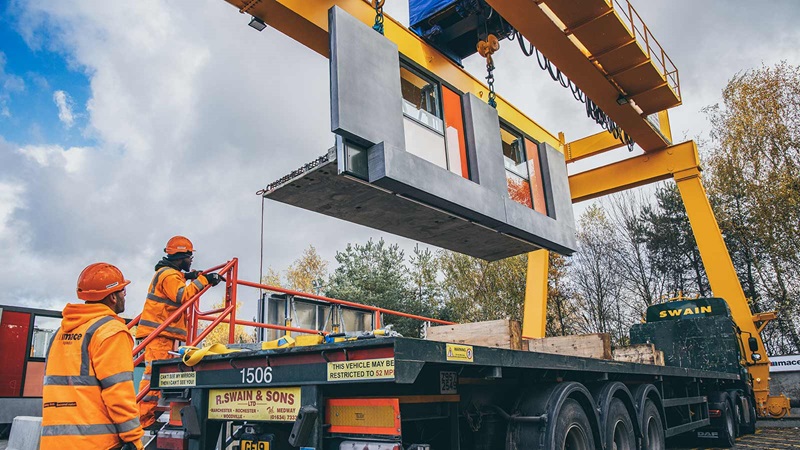Whoever wins the next election, one thing is certain - they will be a builder
We’re merely days into 2023 and attention is already turning to the next general election, which is likely to take place next year. Both Rishi Sunak and Keir Starmer set out their ambitions in their New Year speeches last week. As ever, the commentariat was divided on who delivered the most coherent and convincing plan of action for the future. Sunak and Starmer’s priorities and policy proposals are obviously very different, but one thing the two speeches had in common was a recognition of the importance that “building” - whether it’s homes, infrastructure or trust - will have in winning the electorate’s approval.
Sunak set out five “foundations” on which he hopes to build a better future, and Starmer laid out his blueprint for how Labour could build a “fairer, greener, more dynamic” Britain, on the foundation he laid in 2022, with the help of “builders and retrofitters” and “insulators and engineers” amongst others.
Whether intentional or not, both chose to locate their speeches in Stratford, an area that has been through huge redevelopment over the last decade, with Sunak speaking from the iconic Olympic Park and Starmer from UCL’s recently constructed Here East campus.
But putting rhetorical devices to one side, both leaders seem to have realised that if they want to deliver their ambitions, they need to get building - and fast. With Starmer pledging to work more closely with the private sector, the building industry will start looking like an invaluable partner to devise effective planning policy for both the government and the opposition this year.
Looking at the economy, both leaders want economic growth and job creation. The construction industry accounts for 6 per cent of GDP and is accountable for 2.4 million jobs nation-wide. It was one of the drivers of the UK’s recovery coming out of the pandemic. This trend continues, with ONS figures showing that construction remains one of the few major sectors of the economy that is still growing.
Builders will be essential to the UK reaching its net-zero ambition, as Starmer highlighted. The heating of buildings contributes towards more than a fifth of total carbon emissions in the UK, so to reach our climate goals we must retrofit our current building stock to be more energy efficient with low carbon heating and build sustainable buildings for the future. The Environmental Audit Committee predicted last week that this will require at least one million energy-efficient installations a year by 2025 – a “war-effort” with builders as its soldiers.
Building will be central to improving public services too. If Sunak wants to increase bed capacity, and Starmer wants to “tackle the capacity crisis”, more hospitals will need to be built and the hospital maintenance backlog must be cleared. We have some of the best healthcare services in the world being delivered in crumbling Victorian hospitals. The construction sector will be critical to upgrading these hospitals to be fit for the future and building new state-of-art facilities. The same goes for the £2bn Sunak has committed to educational facilities, with 239 more schools and six form colleges benefiting from renovation projects through the government’s School Rebuilding Programme.
Whoever wins the next election will need a long-term and thought-through strategy to build the homes and infrastructure that this country badly needs to thrive. If Sunak and Starmer both see themselves as builders with their respective bold ambitions to bolster the economy, they will need to think hard about how best to harness the know-how and resources that those who have been building in this country for decades have to offer.
This article was originally published in City A.M.












